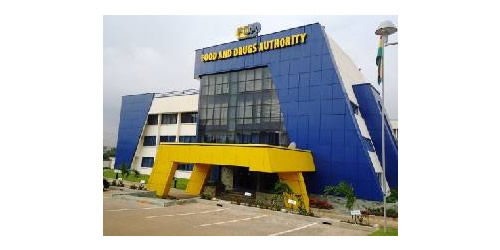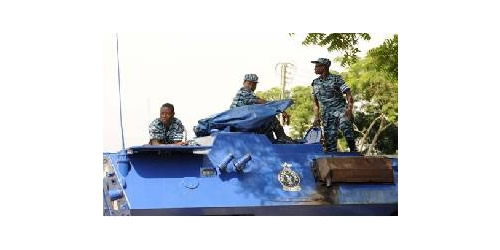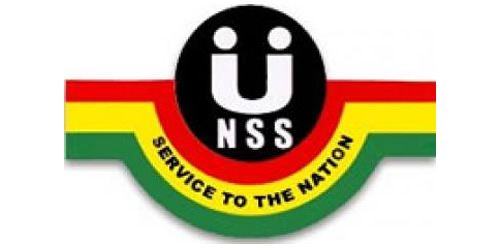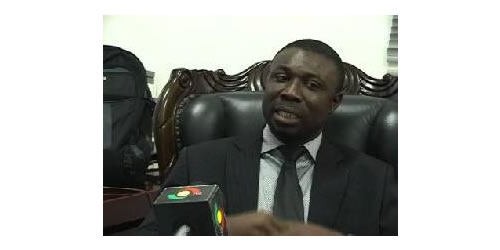Stakeholders discuss project to control galamsey
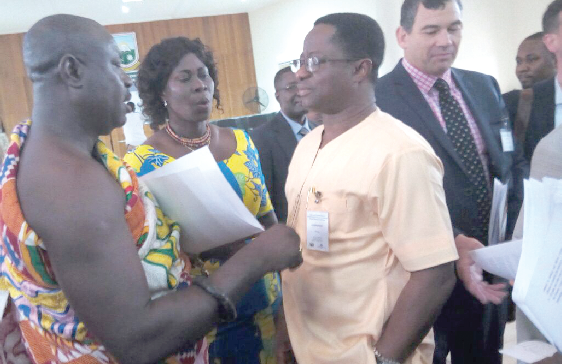
Mr Peter Amewu (middle) interacting with some of the participants after the opening Mr Peter Amewu (middle) interacting with some of the participants after the opening
A national validation stakeholders’ workshop on a project to control illegal mining (galamsey) activities in Ghana has been held at the University of Mines and Energy (UMaT) at Tarkwa in the Western Region.
The Multilateral Mining Integrated Project (MMIP) is a five-year project designed as a collaboration with key stakeholders to control the galamsey menace.
The project document was developed by technical experts and advisors in close collaboration with the Ministry of Lands and Natural Resources (MLNR), other sector ministries and key implementing agencies, with the Minerals Commission (MC) as the lead.
A series of consultations have been done at all levels to discuss the adopted approaches and activities required to establish and implement the project.
There have also been intense stakeholder validation workshops in the Greater Accra, Western, Eastern and Ashanti regions to elicit adequate buy-in and ensure local ownership of the Project Appraisal and Implementation Document (PAID).
Addressing participants in the workshop, the Minister of Lands and Natural Resources, Mr John Peter Amewu, indicated that the mining sector had been a significant contributor to Ghana’s economy, stating for instance that in 2016, the sector provided 17 per cent in terms of domestic taxes collected by the Ghana Revenue Authority (GRA).
He noted that in the area of mineral production, the sector produced over 3.7 million ounces of gold in 2016, adding: “It is significant to note that small-scale miners contributed 31 per cent of this total figure.
The minister, however, observed that while mining operations could generate employment and other benefits, they could also create negative social and environmental impacts.
Mr Amewu pointed out that the small-scale mining sub-sector, especially the illegal operators, contributed in no small measure to major environmental challenges, especially the impacts on the physical environment, river siltation, degraded lands and also the health effects on both operators and the communities, from exposure to mercury and other chemicals.
Proverbial hospitality
“It seems that Ghanaians have extended the proverbial hospitality in a negative way in the mining sector by fronting for foreigners and aiding them to destroy the environment. This is an attitudinal problem and until we change, our success in this current intervention will be slow and impeded but we have no choice than to succeed in combating this menace,” the minister emphasised.
He disclosed that the uncontrolled nature of galamsey activities was said to have negative impacts on water bodies of neighbouring countries, especially La Cote d’Ivoire, saying: “In fact, if we do not control this, it might affect our diplomatic relations.”
In a speech read on his behalf, the Chairman of the Council of State, who is also the Juabenhene, Nana Otuo Siribour II, noted that gold mining by indigenes using basic implements but under the control of traditional authorities started taking place in Ghana long before the first Europeans came to the shores of the country in 1471, introducing industrial scale operations subsequently.
“What we describe generally as small-scale mining, therefore, had long been associated with Ghanaians, and such operations were managed within a structured setting of traditional communities in a way that benefited, through the appropriate stool structures, not only the operators involved but also the mining communities at large,” he added.
Water bodies
Nana Siribour pointed out that as a result of galamsey activities, water bodies had been polluted and a number of social vices such as child labour, prostitution and illicit drug use had become rampant in affected communities.
“The worst part is that there appears to be some compromise between Ghanaians and foreigners, resulting in revenues generated ending up being appropriated by these foreigners without paying the requisite taxes of royalties,” Nana Siribour observed.
In his welcome address, the Vice Chancellor of UMaT, Prof. J.S.Y Kuma, disclosed that in response to UMaT’s presentation, the government released GH¢500,000 to the university to start training artisanal and small-scale miners and other stakeholders, adding that the training programme would start on Monday, July 24, 2017.
“We are prepared to partner government to conduct further research and provide training relevant to the sector for sustainable development,” he assured.
The Australian High Commissioner to Ghana, Mr Glen Askew, also indicated that his government would collaborate with Ghana in the fight against the galamsey menace.
The Western Regional Minister, Dr Kwaku Afriyie, appealed to all political parties to continue to dispassionately support the campaign to help the government end the scourge of galamsey once and for all.
Source: Graphic online

